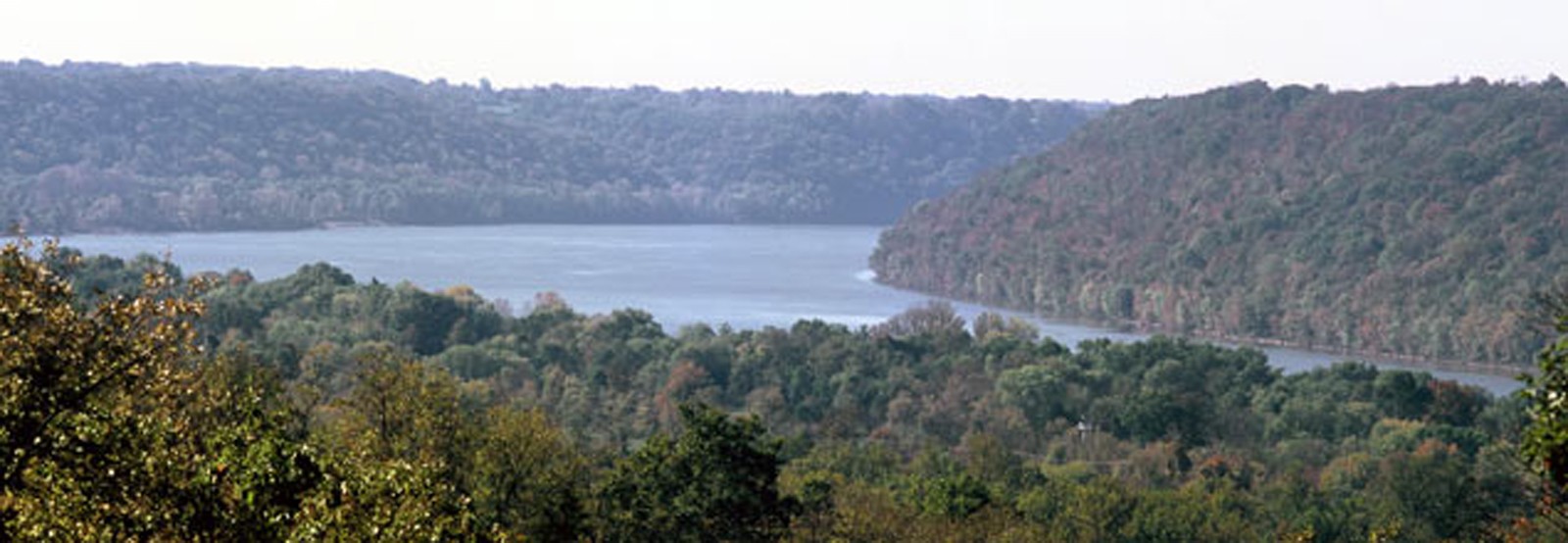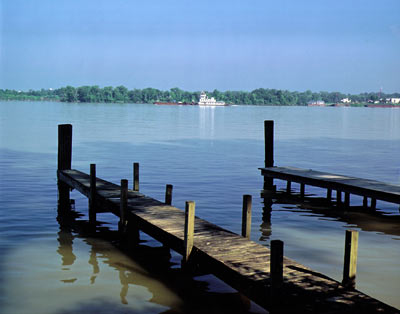Settlement Agreement Reached for Ohio River Bridges Project

On January 4, the National Trust for Historic Preservation (NTHP) and River Fields, Inc., and the highway departments of Kentucky and Indiana announced that they had reached a settlement agreement in federal litigation relating to the Louisville and Southern Indiana Ohio River Bridges Project. The $4.6 billion Project includes two new bridges across the Ohio River and a rebuild of the interchange at the foot of downtown Louisville’s Kennedy Bridge. The lawsuit was filed in 2009 by the National Trust and River Fields. The settlement was approved in January by U.S. District Judge John G. Heyburn II
At issue in the lawsuit was whether federal environmental and historic preservation laws had been followed. Of special concern was that the approaches to the proposed eastern bridge were planned to go through nationally significant cultural landscapes including a 700-acre National Register of Historic Places district, the Country Estates of River Road, listed in The Cultural Landscape Foundation’s first Landslide compendium in 2003. The plaintiffs’ objection to the east end bridge was that it did not address traffic and public safety concerns which were the principal stated reason for the project, and that it would damage these nationally-important natural and cultural resources.
This settlement means that the Louisville, Kentucky metropolitan area is getting a much improved bridges project. Among the results of the agreement are:
 Execution of and funding for critical historic preservation projects on both sides of the Ohio River within the Area of Potential Effect (APE).
Execution of and funding for critical historic preservation projects on both sides of the Ohio River within the Area of Potential Effect (APE).- Confirmation that the two bridges would be built simultaneously, a major victory for those who feared that only the eastern crossing would be built, while the urgent transportation needs at Interstate 65 would languish or not be built at all.
- Increased public involvement in the on-going process of building the spans, as well as further safeguards for property owners against damage during the construction process.
- The settlement is a demonstration for the community that by participating in the public process, calling governemental leaders to account through litigation when necessary, and then engaging in civil discourse, collaboration, and compromise with project leaders, can result in a better project.
The downtown bridge, to be built adjacent to the 50-year-old John F. Kennedy Bridge, will be accompanied by a reconfiguration of the traffic morass known as Spaghetti Junction, where three interstate highways converge at the bridge’s foot. A quarter million trips take place in this interchange daily.
Among the provisions in the settlement, is a $1.7 million Historic Preservation Fund, which may be applied to:
- Relocation of historic houses in Jeffersonville, Indiana, that would otherwise be demolished.
- Streetscape enhancement in Louisville’s Butchertown neighborhood.
- Preservation of notable African-American historic sites in the Prospect area, including the Merriweather House and the Jacobs School.
- Development of National Register nominations and an interpretive plan for other cultural landscape resources associated with African-American properties.
- Further public notification of permits that will impact water quality.
- Commitment that the Project Web site will contain up-to-date information and not require the public to re-register for receiving notices.
The settlement also provides for:
- Further public notification of permits that will impact water quality.
- Commitment that the Project Web site will contain up-to-date information and not require the public to re-register for receiving notices.
About River Fields
River Fields is the largest and oldest river conservancy along the 981-mile Ohio River. For more than a half century, the organization has utilized resources to effectively protect, preserve and enhance the natural and cultural resources of the land and water around the Ohio River. River Fields owns land or holds conservation easements on 34 properties, totaling more than 2,200 acres, most of which will be preserved forever. For more information see www.riverfields.org.
About the National Trust for Historic Preservation
The National Trust for Historic Preservation, a privately funded nonprofit organization, works to save America’s historic places www.PreservationNation.org.
All photos copyright James Archambeault, courtesy River Fields, Inc.




